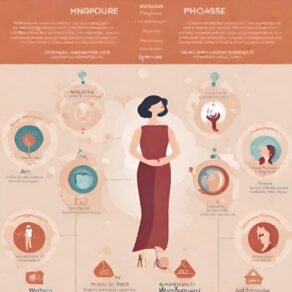Menopause is a natural biological process that marks the end of a woman’s reproductive years. Along with hormonal changes, many women experience various physical and emotional symptoms, including hair loss. Understanding the connection between menopause and hair loss is essential for women to seek appropriate management strategies and maintain confidence in their appearance.
In this article, we delve into the causes of hair loss during menopause, its impact on women’s self-esteem, and effective treatment options.
Understanding Hair Loss During Menopause:
Hair loss during menopause is often attributed to hormonal changes, particularly a decline in estrogen levels. Estrogen plays a role in promoting hair growth and thickness, so its decline during menopause can lead to changes in the hair cycle, resulting in shedding and thinning of the hair. Additionally, fluctuations in other hormones such as progesterone and testosterone can also contribute to hair loss during this phase of life.
Types of Hair Loss Associated with Menopause:
- Androgenetic Alopecia: Also known as female pattern hair loss, androgenetic alopecia is the most common type of hair loss in women during menopause. It is characterized by gradual thinning of the hair, especially at the crown and temples, and may be influenced by genetics and hormonal factors.
- Telogen Effluvium is a condition characterized by excessive hair shedding, often triggered by physical or emotional stress, hormonal changes, or medical conditions.
- During menopause, hormonal fluctuations can disrupt the hair growth cycle, leading to increased shedding and noticeable hair loss.
- Alopecia Areata: Although less common, alopecia areata can occur during menopause, characterized by sudden, patchy hair loss on the scalp or other areas of the body.
- Experts believe that it’s an autoimmune condition where the immune system mistakenly attacks hair follicles, leading to hair loss.
Impact on Self-Esteem:
Hair loss can have a significant impact on a woman’s self-esteem and quality of life during menopause. Many women associate their hair with femininity, youthfulness, and attractiveness, so experiencing hair thinning or baldness can lead to feelings of embarrassment, self-consciousness, and decreased confidence. Coping with alopecia during climacteric requires emotional support, understanding, and access to effective treatment options.
Treatment Options for Menopause-Related Hair Loss:
- Hormone Replacement Therapy (HRT): Hormone replacement therapy, which involves taking estrogen and sometimes progestin to supplement declining hormone levels during climacteric, may help improve hair loss in some women.
- However, it’s essential to discuss the potential risks and benefits of HRT with your healthcare provider before considering this treatment option.
- Topical Treatments: Over-the-counter topical treatments containing minoxidil, a medication that promotes hair growth, may be effective in treating hair loss during climacteric.
- Patients apply these treatments directly to the scalp to stimulate hair follicles and promote regrowth.
- Nutritional Supplements: Certain nutritional supplements, such as biotin, vitamins, and minerals like iron and zinc, may support hair health and growth. Consult with your healthcare provider before taking supplements to ensure they are safe and appropriate for your individual needs.
- Lifestyle Modifications: Adopting healthy lifestyle habits such as eating a balanced diet, managing stress, getting regular exercise,
- and avoiding harsh styling practices can help support overall hair health and minimize alopecia during menopause.
Conclusion:
Hair loss during climacteric can be distressing for many women, affecting their self-esteem and quality of life. By understanding the causes and types of hair loss associated with climacteric and exploring effective treatment options, women can take proactive steps to address alopecia and maintain confidence in their appearance.
Whether through hormone replacement therapy, topical treatments, nutritional supplements, or lifestyle modifications, there are various strategies available to support hair health and promote regrowth during this transitional phase of life. With the right support and resources, women can navigate menopause-related alopecia with resilience, confidence, and empowerment.





